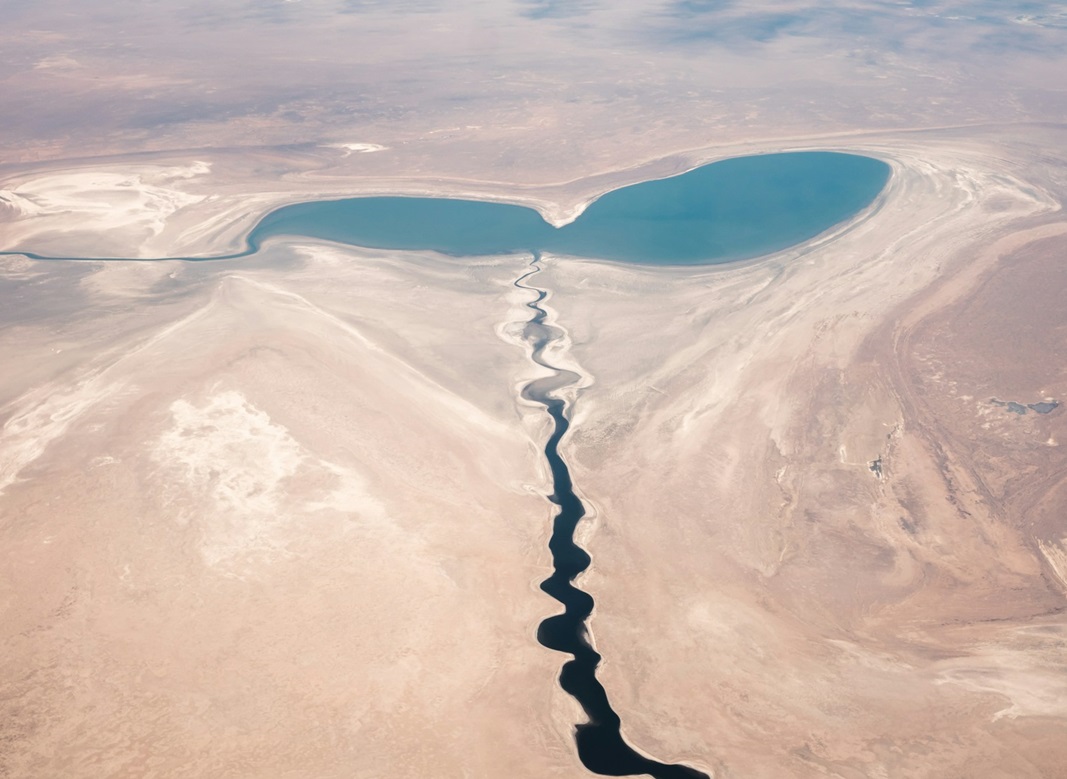The effects of 'Aral Desert' dust on climate
According to a study by German researchers, the large quantities of dust originating from the drying out of what was once the great lake between Uzbekistan and Kazakhstan are causing a cooling of the ground during the day, and a warming effect at night. Making desertification caused by drying out a problem not only local
Berlin (AsiaNews) - German scholars from the Leibnitz Center for Tropospheric Research and the Free University of Berlin have published an alarming report in the scientific journal Atmospheric Chemistry and Physics on the amount of dust covering the territories of Central Asia, which in recent thirty years has increased by 7% due to the drying of the Aral Sea.
According to the analysis, between 1984 and 2014, dust discharges from desert areas into the reservoir increased from 14 to 27 million tons, and according to experts there could be even many more than what was managed to calculate, as two thirds of the dust mass remains in the air.
The Aral, which the locals call "sea" rather than "lake", was an entire salt basin of oceanic origin, located on the border between Uzbekistan and Kazakhstan in the territory of the autonomous republic of Karakalpakstan. Until the early sixties of the last century it was classified as the fourth largest lake in the world, with a surface area of 68 thousand square kilometers, and was fed by the Amu Darya and Syr Darya rivers, which flow from the peaks of the Pamir and Tien Shan.
The exploitation of water resources for the intensive production of cotton, which began in the 1950s, then caused its separation into a smaller basin to the north and a larger one to the south, leading to its almost total exhaustion and transformation into a desert. dusty which is called Aralkum, the "Aral desert".
Aralkum is today in fact one of the main artificial sources of dust on the entire planet. It is a desert of 60 thousand square kilometers, although much smaller than the desert parts of the Karakum, 350 thousand square kilometers in the south of Turkmenistan, and the Kyzylkum, 300 thousand square kilometers in the south-eastern area of Uzbekistan and Kazakhstan, but in fact much more harmful , due to the large quantity of fertilizer and pesticide residues contained in its dust.
To evaluate the consequences of Aralkum dust, German researchers used the Cosmo-Muscat model, which allows them to analyze the concentration of dust particles in the atmosphere.
The dust causes a cooling of the ground during the day, and a warming effect during the night due to the reflection of the long wave of heat radiation, and in this way the overall result of the dust radiation is a continuous change of cold and heat which depends on the height of the dust in the atmosphere, the length of light time throughout the day, the seasons, the surface relief and the mineralogical and optical properties of the various materials.
In addition to the radioactive effects, the working group members found clear signs of how the dust can change weather conditions on a large scale. Aralkum dust increases the air pressure above ground level in the entire Aral region by up to +0.76 Pascal per month, which leads to a strengthening of the Siberian cold in winter, and a decrease of the Central Asian heat in the summertime.
The conclusions of the research underline that the advanced desertification caused by the drying of the lake is not only a local problem, but affects many other regions; Furthermore, the new data collected on the former Aral Sea will be able to help evaluate the influence of desert dust on the climate at a global level.







.png)










